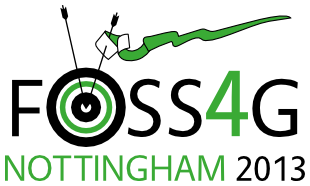Presentation
Qualifying For Open Source
Arnulf Christl (metaspatial)
13:30 on Saturday 21st September (in Session 67, starting at 1:30 p.m., EMCC: Room 4)
Show in Timetable
There is a growing need for independent qualification around Open Source. In general IT it is already possible to acquire post graduate qualifications, for example the the Linux Professional Institute Certification (LPIC). In the geospatial domain there are programs but most are heavily focused on learning a specific typically proprietary software. None of this exists for the Open geospatial domain. This has been discussed in and around OSGeo for quite some time but it is a decidedly difficult topic to tackle and proves to have a lot of slippery slopes. It requires continuous engagement which can only be ensured by having dedicated paid staff. This requires up front investment and a continuous stream of revenue coming in to keep going. As it turns out OSGeo has (for now) decided to not go down this road but instead rely on volunteer work, foster communities and keep its independence from investors. But as the Open Source Geospatial market grows so does the need for accreditation and post graduate qualification. Some Open Source businesses have gone forward and offer training courses and do so well. But again they will focus on "their own stack" and are therefore not really qualified to qualify others in a more general sense of Openness. The same applies to Open Standards and increasingly also for Open Data. Metaspatial now launches an Institute with the mission to close this gap by offering an accreditation program. It is clearly geared towards individuals and does not qualify for a brand (as do most proprietary vendors) or for a specific company. The intention is to specifically raise the value of individual competence instead of making people just another exchangeable human resource. As the prefix "meta" already suggests this is a program beyond purely "spatial". Besides qualifying on a technical level individuals are invited to learn about themselves and introspectively explore their own potential. The program initially focuses on four main qualifications: * Open Source Geospatial Software Developer * Open Data Professional * Open Standards Expert * Open Geospatial Consultant In the presentation Arnulf Christl, president of the metaspatial Institute will explain the program and offer insights into the accreditation process. The program is developed in close cooperation with universities and academia, but also with open source businesses, user communities and not-for-profit organizations. The program is offered through a commercial entity (metaspatial) and geared towards accrediting professionals. The program does not provide training classes for specific software stacks (i.e the software XY or the Suite ZA) because there already exists a well established ecosystem of Open Source businesses around the globe offering this. The Process: Accreditation starts by sending in an application. The application requires an extended CV, previous work references and list of associations. After these have been evaluated and if they are acceptable the applicant qualifies for an online test which requires payment of a moderate fee. If the online test was successful the applicant is invited to a personal interview. This is probably the most subjective and intricate but also most important and challenging part of the process. Once accepted the applicant pays the second part of the fee and is listed in the metaspatial hall of fame as a professional for one (or more) of the above areas. The accreditation is valid for 2 years as of acceptance after which the process can be repeated with the initial fee being waived. Organizational Structure Initially the metaspatial Institute will be run as a private company with Arnulf Christl as president. An advisory board of directors from private industry, academia, Open Source and standardization organizations will oversee and accompany the process. Initial funding comes from private investment and a sponsorship program (to be launched before FOSS4G 2013). The long term goal of the institute is to establish an environment of paying accredited professionals who will be able to cover the running costs of the institute. Partners: The metaspatial Institute partners with academia, private industry and not-for-profit organizations. Training partners are invited to have the metaspatial Institute quality assure their courses but this is not mandatory. Accreditation fees will be reduced for successful participants of metaspatial QA'd courses. Future Development The accreditation program will undergo continuous improvement based on the the feedback of the applicants, the board of directors and through the input of the sponsors. The metaspatial Institute does not intend to offer training courses on their own and does not intend to compete with existing academic education. Instead it aims to close the gap of post-graduate qualification accreditation for Open geospatial professionals.
